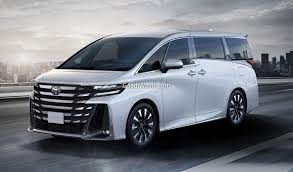Toyota Cars
Introduction
Toyota Motor Corporation, headquartered in Toyota City, Japan, is one of the world’s leading automakers, renowned for its commitment to quality, innovation, and sustainability. Since its founding in 1937, Toyota has grown from a small loom manufacturing company into a global powerhouse, producing a diverse range of vehicles that cater to various markets and consumer needs. This article explores the history, technological advancements, popular models, and Toyota’s impact on the automotive industry.
A Brief History of Toyota
Toyota’s journey began with Kiichiro Toyoda, who transitioned his family’s loom business into automobile manufacturing. The first Toyota vehicle, the Model AA, was introduced in 1936. However, it was the post-World War II era that marked Toyota’s rise to prominence. By focusing on lean manufacturing and efficiency, Toyota developed the Toyota Production System (TPS), a revolutionary approach that minimized waste and maximized productivity. This system became a global benchmark for manufacturing industries.
In the 1960s, Toyota entered international markets, starting with the United States, where the compact Corona gained popularity. Over the decades, Toyota’s reputation for building durable, reliable, and fuel-efficient vehicles solidified, making it a household name worldwide.
Technological Innovations
Toyota has been a pioneer in automotive technology, particularly in hybrid and electric vehicles. The introduction of the Toyota Prius in 1997 marked a turning point in the industry, as it was the first mass-produced hybrid car. The Prius combined a gasoline engine with an electric motor, offering exceptional fuel efficiency and reduced emissions. Today, Toyota’s hybrid lineup includes models like the Corolla Hybrid, RAV4 Hybrid, and Highlander Hybrid.
Beyond hybrids, Toyota is investing heavily in electric vehicles (EVs) and hydrogen fuel cell technology. The Toyota bZ4X, an all-electric SUV, showcases the company’s commitment to zero-emission mobility. Additionally, the Mirai, a hydrogen fuel cell vehicle, represents Toyota’s innovative approach to sustainable transportation.
Toyota’s advancements extend to safety as well. The Toyota Safety Sense suite, standard in most modern Toyota models, includes features like adaptive cruise control, lane departure warning, and automatic emergency braking, enhancing driver and passenger safety.
Popular Toyota Models
Toyota’s diverse lineup caters to a wide range of consumers, from budget-conscious buyers to luxury seekers. Some of the most iconic and popular models include:
- Toyota Corolla: One of the best-selling cars globally, the Corolla is known for its reliability, affordability, and fuel efficiency. Available as a sedan, hatchback, or hybrid, it appeals to a broad audience.
- Toyota Camry: A midsize sedan that blends comfort, performance, and advanced technology, the Camry is a favorite among families and professionals.
- Toyota RAV4: A compact SUV that offers versatility, rugged design, and hybrid options, making it ideal for urban and outdoor adventures.
- Toyota Tacoma: A midsize pickup truck celebrated for its durability and off-road capabilities, popular among adventure enthusiasts.
- Toyota Land Cruiser: A legendary SUV known for its off-road prowess and luxury features, favored in challenging terrains worldwide.
Toyota’s Commitment to Sustainability
Toyota is a leader in environmental stewardship, aiming to achieve carbon neutrality by 2050. The company’s “Toyota Environmental Challenge 2050” outlines goals such as reducing vehicle CO2 emissions, promoting recycling, and supporting biodiversity. Toyota’s investment in hybrid, electric, and hydrogen technologies aligns with these objectives, ensuring a sustainable future for mobility.
Additionally, Toyota supports eco-friendly manufacturing practices. Its plants use renewable energy sources, and the company actively works to reduce water usage and waste in production processes.
Toyota’s Global Impact
Toyota’s influence extends beyond manufacturing. The company has created millions of jobs worldwide and supports local communities through philanthropy and education initiatives. Its global presence includes manufacturing plants in North America, Europe, Asia, and Africa, contributing to economic growth in these regions.
Moreover, Toyota’s motorsport division, Toyota Gazoo Racing, has made significant strides in rally and endurance racing, showcasing the brand’s performance capabilities. Models like the GR Supra and GR Yaris reflect Toyota’s passion for driving excitement.
Challenges and Future Outlook
Like all automakers, Toyota faces challenges, including supply chain disruptions, rising material costs, and the rapid shift to electric vehicles. However, Toyota’s diversified portfolio and focus on innovation position it well to navigate these challenges. The company continues to invest in autonomous driving technology, connected vehicles, and smart mobility solutions, ensuring it remains at the forefront of the automotive industry.
Conclusion
Toyota’s legacy is built on a foundation of reliability, innovation, and adaptability. From the iconic Corolla to the groundbreaking Prius and the rugged Land Cruiser, Toyota cars have earned the trust of millions worldwide. As the automotive industry evolves, Toyota’s commitment to sustainability, safety, and cutting-edge technology ensures it will continue to shape the future of mobility for generations to come.
